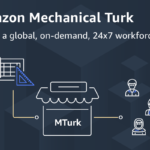The rapidly evolving landscape of artificial intelligence has captured the attention of tech enthusiasts and industry leaders alike. In this article, we delve into Elon Musk’s predictions for AI in 2026, examining the intriguing implications and potential challenges. As we explore these forecasts, we also question the legitimacy of the website musk2026 com, providing insights and reviews to determine if it’s a scam or a legitimate source.
Understanding AI in musk2026
As we approach 2026, the advancements in artificial intelligence are expected to be nothing short of revolutionary. Companies like OpenAI and Google are at the forefront, developing cutting-edge technologies that may redefine user interaction with AI. The concept of artificial general intelligence (AGI) is anticipated to become more prevalent, prompting discussions about privacy and data protection. This era will likely witness an intriguing shift towards synthetic data, as industries explore innovative methods to enhance AI learning and efficiency.
The Evolution of AI Technologies
The evolution of AI technologies has been marked by significant milestones, each contributing to a broader understanding of artificial intelligence. By 2026, we anticipate that AI will not only be more integrated into everyday life but also operate with greater intelligence and autonomy. The advancements in machine learning and data processing capabilities will enable AI systems to make informed decisions, enhancing user experience. However, this progress raises critical questions about data privacy and the ethical implications of deploying such powerful tools.
Predictions from Elon Musk
Elon Musk has been a vocal advocate for the responsible development of AI. His forecasts for 2026 suggest that we will see a surge in AI-generated applications that could fundamentally alter various industries. Musk emphasizes the need for robust regulations to protect users and ensure that data is handled with integrity. His perspective on the potential for AI to surpass human intelligence raises both excitement and concern, as we navigate the fine line between innovation and ethical responsibility.
Key Players in the AI Space
The race for AI supremacy involves several key players, including tech giants like Meta, Google, and emerging startups. These companies are investing heavily in research and development to harness AI’s potential while addressing challenges related to trust and security. The domain of AI is dynamic, with platforms like Cloudflare Radar providing insights into trends and user engagement. As we tune into related podcasts, such as the episode of Beyond the Screen, we gain a deeper understanding of the strategic moves made by these companies and their implications for the future of artificial intelligence.
Examining musk2026.com
Website Overview and Purpose
musk2026.com positions itself as a source of insights into the future of artificial intelligence, particularly relating to Elon Musk’s predictions for 2026. The website claims to offer analysis and reviews of AI developments, encouraging users to explore the evolving landscape of technology. However, the legitimacy of the site remains in question, as its purpose and authenticity require further scrutiny. Understanding the domain’s objectives is crucial for users seeking reliable information about AI advancements and their implications for privacy and data protection.
Analyzing the Claims Made
The claims made by musk2026.com include forecasts of AI’s impact on various industries and the importance of ethical considerations in AI development. However, the validity of these statements is debatable, as there is limited evidence supporting the assertions. Users are encouraged to approach the information with caution, utilizing tools such as URL scanners to assess security and credibility. As discussions around artificial general intelligence (AGI) intensify, the accuracy of claims becomes paramount, particularly when they influence consumer perceptions and decisions.
Is musk2026.com a Scam?
Determining whether musk2026.com is a scam or a legitimate source involves examining user reviews and conducting thorough research. The site has received a low trust score, raising red flags among potential visitors. Additionally, reports of phishing attempts linked to similar URLs warrant vigilance when navigating the website. Users should consider alternatives and rely on established platforms for accurate information on AI forecasts and privacy implications, ensuring they protect their data while exploring the intriguing advancements in artificial intelligence.
Impact of AI on Consumers by 2026
Consumer Devices and AI Integration
By 2026, we anticipate a significant integration of AI into consumer devices, fundamentally altering how users interact with technology. This bold shift will enable smarter homes, personalized experiences, and enhanced user interfaces across various platforms. Companies like Google and Meta are leading this transformation, developing cutting-edge solutions that leverage AI to improve everyday tasks. As AI-generated applications proliferate, consumers will benefit from increased efficiency and convenience, although this integration also raises concerns regarding data privacy and user control over personal information.
Benefits and Risks for Consumers
The benefits of AI integration for consumers include improved convenience, faster service delivery, and tailored experiences. However, these advantages come with inherent risks, such as potential data misuse and privacy violations. As we explore the implications of AI in daily life, it is crucial for consumers to remain informed about their rights and the measures they can take to protect their personal data. Companies must prioritize transparency and the ethical handling of information to foster trust and ensure user safety in this rapidly evolving landscape.
Data Privacy and Protection
As AI technologies advance, data privacy and protection will become increasingly critical for consumers. With the growing reliance on AI-generated insights, users must be aware of how their information is collected, stored, and utilized. Protecting personal data requires robust security measures, including SSL certificates and compliance with privacy regulations. Companies must implement transparent practices to uphold user trust, encouraging responsible AI development. As we navigate the challenges of 2026, prioritizing data protection will be essential in safeguarding consumer rights and promoting a secure digital environment.
Comparative Analysis: Google and Other AI Companies
Google’s Role in AI Development
Google has emerged as a pivotal player in the development of artificial intelligence, harnessing its vast resources to push the boundaries of AI capabilities. By 2026, Google’s contributions are expected to encompass advanced machine learning models and cutting-edge AI applications. As the company explores the intriguing shift towards synthetic data, its innovations will likely redefine user experiences across various platforms. Google’s commitment to privacy and data protection is critical, as it navigates the complexities of AI integration while ensuring that user trust remains intact in this evolving landscape.
Competitors to Musk’s Vision
Elon Musk’s vision for AI development faces competition from several key players in the industry, including companies like Meta and OpenAI. Each of these organizations is exploring unique approaches to artificial general intelligence (AGI) and AI-generated solutions. As we assess Musk’s predictions, it’s crucial to analyze how these competitors are shaping the future of AI technology and addressing concerns around privacy and data use. With various initiatives underway, the race to harness AI’s potential is intensifying, prompting industry leaders to balance innovation with ethical responsibilities.
Exploring Alternative AI Forecasts
Beyond Musk’s predictions, alternative AI forecasts from various tech experts provide valuable insights into the future landscape of artificial intelligence. These forecasts often emphasize the importance of robust data protection measures to safeguard user information as AI technologies advance. Industry reports and podcasts, such as episodes of Beyond the Screen, contribute to the discourse surrounding AI’s trajectory, helping enthusiasts understand the implications and challenges. By exploring diverse perspectives, individuals can gain a comprehensive view of the evolving AI ecosystem and its potential impacts on society.
Conclusion and Future Outlook
Summary of Key Insights
In summary, the analysis of Elon Musk’s AI forecasts presents a multifaceted view of the future of artificial intelligence. As we approach 2026, the integration of AI into everyday life is expected to deepen, driven by leading companies like Google and emerging startups. However, the discussions surrounding data privacy and ethical AI use remain paramount. The key insights from this exploration underline the need for vigilance in assessing the credibility of platforms like musk2026.com, ensuring that users navigate the AI landscape with awareness and caution.
Final Thoughts on musk2026.com
While musk2026.com aims to provide valuable insights into the future of AI, its legitimacy is still in question. Users should approach the site with skepticism, considering reviews and security assessments to determine its trustworthiness. As the domain continues to attract attention, it’s essential to rely on reputable sources for accurate information regarding AI developments and their implications for privacy and data protection. Understanding the motivations behind such platforms is crucial as we engage with the AI community.
Next Steps for AI Enthusiasts
For AI enthusiasts looking to stay informed, engaging with reliable resources is vital. Subscribing to newsletters, participating in forums, and listening to podcasts on Spotify can provide ongoing updates about advancements in artificial intelligence. Additionally, utilizing URL scanners to examine the credibility of websites can help protect users from potential scams. As we explore the dynamic world of AI, it’s important to remain proactive in understanding new developments and advocating for ethical standards in AI practices.







